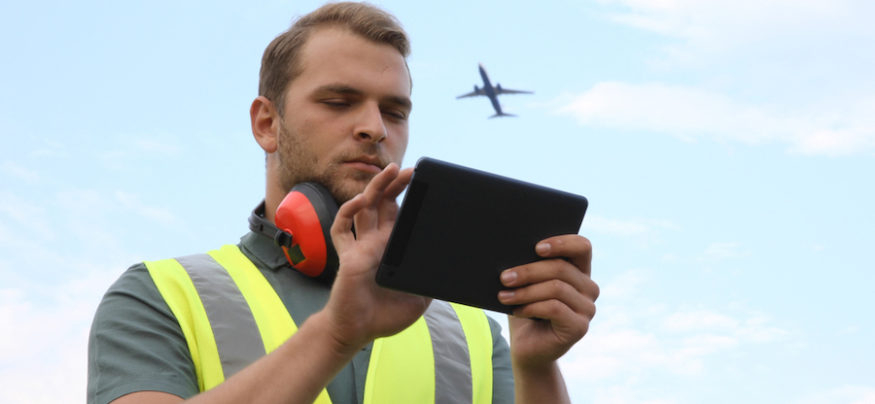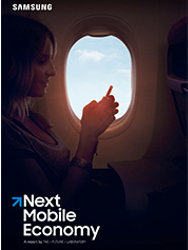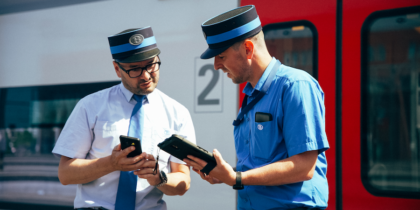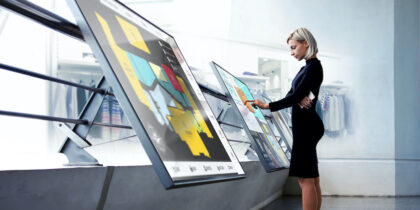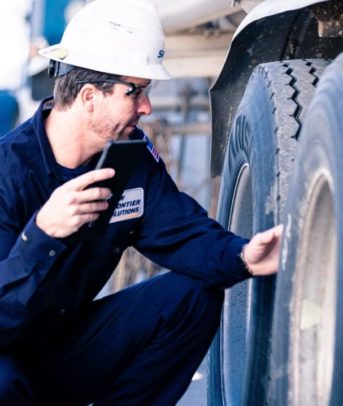It’s ironic that the airlines who operate technologically sophisticated aircraft every day find themselves behind the curve in customer-facing technology.
In order to deliver distinctive passenger experiences that can enable higher margins, airlines need to design more passenger-centric experiences and deploy the technology to support them. Mobility is an essential component in this transformation. Smartphones and other mobile devices enable end-to-end communications that deliver insights to and from the aircraft, gates and tarmac. Better communications can also reduce costs by improving employee performance and accelerating turn times. Let’s consider some of the opportunities that mobility can unlock.
Customer Service Reps and Gate Agents
One of the most egregious issues I see when working with airlines is that gate agents are constantly held up by the slow and outmoded computer technology they’re given. Logging in at the gate typically takes five minutes or more, which is simply a nightmare when gate agents have to move from gate to gate between flights, and customers are queueing and seeking assistance at every gate.
Mobile technology can eliminate this scenario by enabling gate agents to log in to their device using biometric sensors, such as fingerprint or face recognition, while they’re on their way to the gate. If their smartphone has Samsung DeX, they can dock it to a monitor and keyboard at the gate to use the airline’s apps in full desktop mode. This saves valuable time for agents, and they can use the phone for airline business while traversing the airport.
Mobile devices can also supplant standalone scanning devices, including those used to check baggage and cargo, permit entrance to airline lounges, and scan boarding passes — often at a lower price and with fewer hardware updates needed. As a bonus, new employee training time is usually cut down substantially because they’re already familiar with how mobile devices work.
Ground Crews
Mobile technology can provide a great assist for ground and ramp crews. Some airlines are looking at wearables devices such as enterprise-ready smartwatches for convenient task management. A ramp manager can assign a task to a ramp worker by sending an alert to their watch, and the ramp worker can acknowledge the assignment with one touch and later mark the task complete with another touch. The ramp workers and baggage handlers can participate in two-way communications without having to free their hands to use the device.
Embrace the Next Mobile Economy
Get a free report on how to realize the potential of mobile in your business. Download Now
Like the watches, smartphones and tablets can enable improvements in ramp operations by replacing expensive, single-use devices and reducing the device count. Airlines can buy off-the-shelf consumer devices and take advantage of the developer-friendly Android platform to deploy scanning, communications, task management and more on a single device that is affordable, rugged and secure.
Flight Attendants
Smartphones and tablets are also excellent work tools for flight attendants. In the cabin, they can act as mobile point-of-sale devices that take credit card payments for food, drinks and comfort items. The devices can also deliver insights from customer data applications to help attendants know their passengers and deliver customized experiences.
Whenever an attendant is not serving passengers, they can use their mobile device for other aspects of their work, such as scheduling, training, communications and HR. By owning and controlling the devices, airlines can ensure that every attendant always has a working device that keeps them connected to all the airline’s core employee applications. By adding a device management tool such Samsung Knox Configure, an airline can configure all its devices to always reboot to the uniform business profile and download OS and application upgrades automatically. If a device is lost or damaged, the employee can log into a new device and continue working without interruption.
Where Do You Start the Transformation?
It’s an exciting time to be an airline executive because you have a rare opportunity to make a solid impact on revenue without undergoing a painful and costly technology overhaul. Mobile device programs are relatively inexpensive to implement and can start showing a profit quickly, as it takes little time for employees to get up to speed. The applications you purchase or create will be futureproofed when you are utilizing the open Android OS.
If you aren’t sure where to begin, I recommend reaching out to a technology partner like Samsung who has experience planning and implementing airline mobile programs. We can help you home in on the opportunities you might want to pursue first and quantify what that program will cost in terms of revenue and implementation time. Start making meaningful changes to your on-time performance and bottom line by implementing a savvy and strategic mobile device program.
Ensure your business is on the cutting edge of technology by looking through our full line of transportation solutions.
